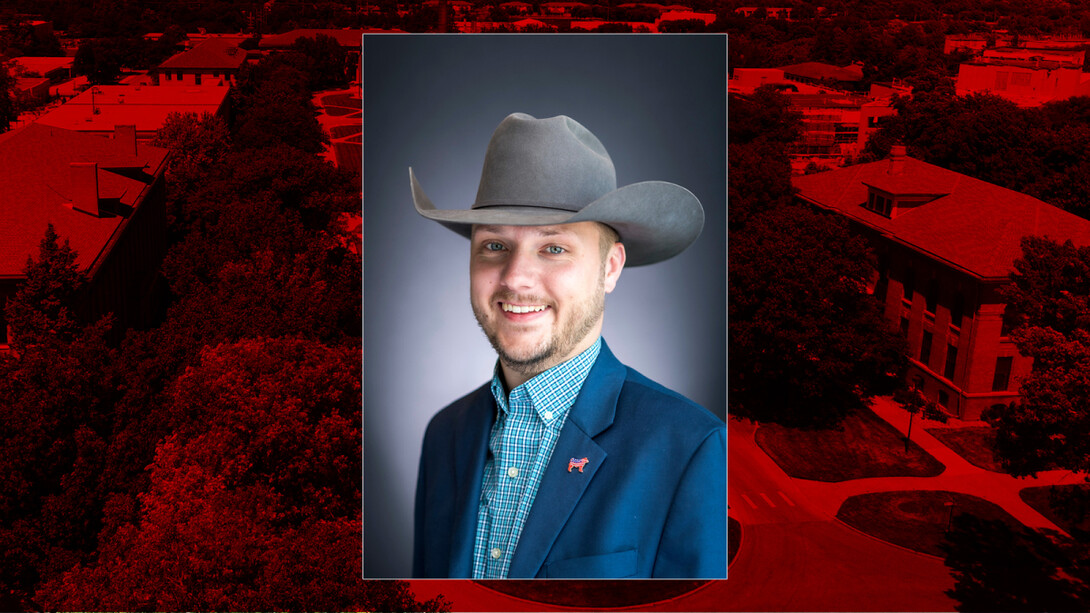
Editors note: The largest segment of Nebraska’s agriculture industry is beef production. It powers the state’s economy and has an unmistakable impact on almost everyone in Nebraska. In honor of beef month, the Institute of Agriculture and Natural Resources at the University of Nebraska-Lincoln is sharing a series that will feature people, places, and research that are a cornerstone of Nebraska’s land grant mission.
Lincoln, Neb. —Jesse Fulton is the Beef Quality Assurance State Coordinator for Nebraska. He lives in Scottsbluff, Nebraska with his wife Brittany and daughter Olivia.
Talk about your role as director of Nebraska Beef Quality Assurance.
My primary role as the Director of the Nebraska Beef Quality Assurance (BQA) is to coordinate the BQA program within Nebraska. In Nebraska, we allow practicing veterinarians and beef extension educators to host and conduct BQA trainings. Because of this, we have a robust trainer network of over 120 trainers. I assist these trainers in event promotion and BQA certificate management. I also conduct nearly 30 BQA trainings statewide each year that are open to the public and other additional beef programming. Finally, I attend many meetings nationally as a participant or invited speaker representing Nebraska BQA. In my opinion, this is probably the most important part of my position because I ensure Nebraska BQA (i.e. Nebraska producers) are represented at the table or in the “know” when important issues are discussed that may impact them.
You started in this role in early 2021. What initially drew you to this position at Nebraska, the beef state?
Prior to this position, I worked at the National Cattlemen’s Beef Association (NCBA) in Denver, CO where I served as the Director of Producer Education. In this role, I assisted with the National BQA program. During my time at NCBA, I met my wife Brittany (Schaneman) who was originally from Scottsbluff. When this position became available, it was the perfect opportunity for us to relocate back to her hometown to start a family. The fact that it was Nebraska, the “beef state” was a perk! I was excited to take over an extremely important program that focuses on cattle and beef in a state where cattle and beef are the leading industries.
The BQA program began in the early 1970’s and 80’s. Talk about the program and all the ways it ensures safe beef production practices.
The BQA program began with a focus on preventing violative residues and injection site lesions. Because of the program, the industry has made great strides in reducing to nearly eliminating the presence of both. Today, the BQA program focuses on animal behavior and handling, biosecurity, herd health management, record keeping, cattle nutrition, environmental quality control points, emergency action planning, worker safety, and cattle transportation.
The mission of the program is to guide producers towards continuous improvement using science-based production practices that assure cattle well-being, beef quality and beef safety.
You are a Kentucky native. Talk about raising beef there and what life was like growing up.
There are some pretty significant differences between raising cattle in Kentucky vs. Nebraska. In Kentucky, our average annual rainfall is 46.86”, while Nebraska’s is about 27” depending on where you’re at. While the additional moisture is nice for the grass at times, it has its cons, primarily being mud. Stocking rates in Kentucky vary, but if grass is good, a producer can run a pair on 1½ - 2 acres.
While Nebraska is in the top 4 for states with beef cattle, Kentucky isn’t too far behind being number 8 (most cattle East of the Mississippi). Kentucky was once a big tobacco state, but since the buyouts, those tobacco producers have primarily become beef cattle producers. Often referred to as “tobacco money” there are financial resources available to cattle producers to help them make improvements to their operations.
As for myself growing up in Kentucky, I could write a novel. We weren’t poor, and we weren’t rich, but we were blessed. My dad drove a truck his whole life to make sure we had what we needed. While many make jokes about it, it is very true about no shoes on your feet (for me anyways). I was always running around our place barefoot.
I often hear that folks from the great plains feel a sense of claustrophobia when they are in Kentucky or states similar because of all the hills and trees. I miss home every day and hope to end up back in Kentucky one day. I always joke that is where I will retire.
What is your goal for the Nebraska BQA and BQAT program?
That’s easy, to be the best of the best. I want the Nebraska BQA and BQAT programs to be seen as the gold standard of a BQA program across the nation. There is no reason we can’t be. We have some of the greatest cattle producers here.
This year the Nebraska Beef Quality Assurance program made history, by becoming the first state BQA program to win 4 out of the 5 Beef Quality Assurance awards at the National Cattleman’s Beef Association convention. Talk about the work leading up to that moment.
It was tough. Writing up the BQA award nominations is no short task. It’s no secret that sometimes cattle producers aren’t the best at telling their story when they have such a wonderful story to tell. Additionally, cattlemen can be private, which can make it tough when I’m asking them to tell their story nationally, that is where I come in to help.
What is your advice to others looking to make a positive impact on the beef industry?
Always be willing to think outside the box, be proactive, and be willing to change. Our industry is evolving every day and because of that, we must be willing to evolve with it.







